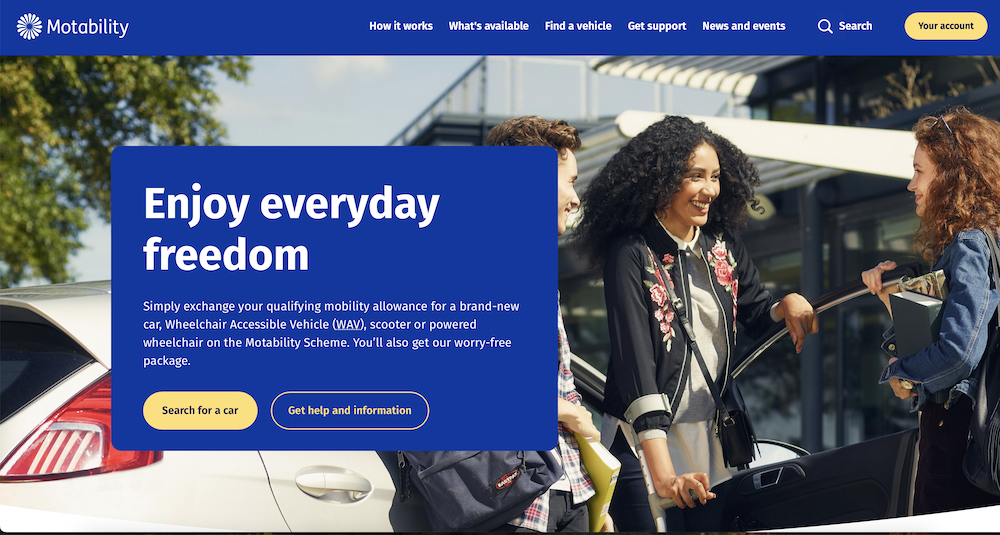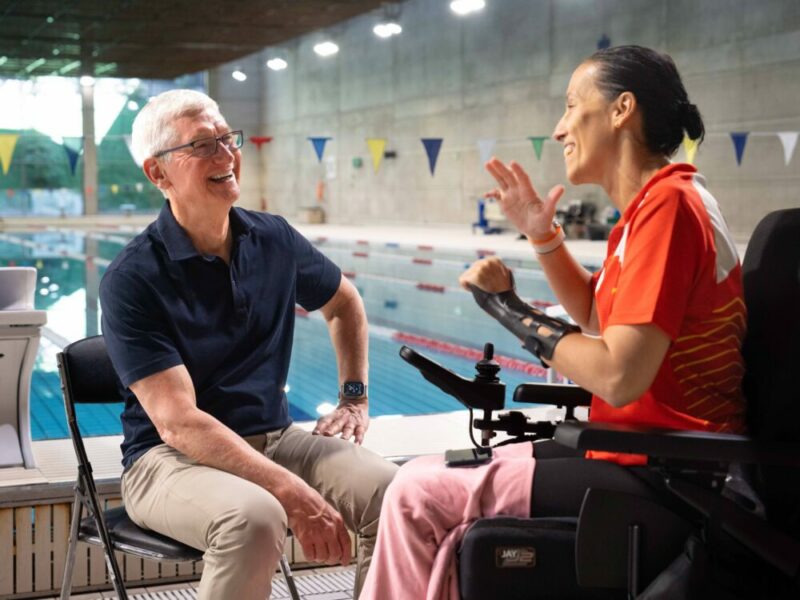As the Paralympics in Paris captivate and inspire people around the world, the World Health Organisation (WHO) and the International Paralympic Committee (IPC) have launched the “Equipped for Equity” campaign, drawing attention to the urgent need for greater access to assistive technology. The WHO estimates that over 2.5 billion people globally need at least one assistive product, such as a wheelchair, hearing aid, or communication software. Shockingly, nearly 1 billion people lack access to these essential technologies.
This global call to action serves as a poignant reminder that technology, which can empower and transform lives, remains inaccessible to millions worldwide. In the UK, despite being one of the wealthiest countries, many of the 16 million disabled people still find themselves priced out of technology that could greatly enhance their quality of life.
This issue is deeply personal to me. Living with a severe muscle-wasting disability, I have built a smart home to help manage my daily life, so I understand just how transformative technology can be. However, this technology comes with a significant financial burden—one that many disabled people simply cannot afford, particularly during a cost-of-living crisis where a substantial proportion of disabled people live in poverty.
Growing up, I was a little boy in a wheelchair, restricted by a body that didn’t work, who dreamt of becoming a television producer. Thanks to the digital revolution of the 1990s, I was able to achieve that dream, working as a producer for the BBC. Access to technology enabled me to defy the odds and succeed. However, as we undergo another digital revolution, many disabled people are being left behind. The technology that once liberated me has become, for many, inaccessible and unaffordable.
In the UK, access to technology for disabled people is a patchwork of minimal provisions. The government’s Access to Work scheme once provided technology, such as laptops and tablets, to some of the 53.5% of disabled people in employment, but recent cuts have significantly reduced this support. Additionally, the NHS offers Environmental Control Services across the country, but these services are limited in scope.
The statistics are stark. In the UK, there are 16 million people living with a disability, and many of them, particularly those living alone, are in poverty. The loneliness rate among disabled people is four times that of non-disabled individuals. The COVID-19 lockdowns and shielding measures exposed what is, for many in our community, a daily reality. I can spend months confined to my home, relying on technology to stay connected and maintain my independence. It is a travesty that, at a time when so many depend on technology, those who need it the most are the most excluded.
Big tech companies recognise the transformative power of technology for disabled people, as highlighted by Apple CEO Tim Cook’s recent tweet during the Paralympics, celebrating athletes and the impact of accessible technology. However, despite this recognition, the reality is that many tech giant products remain out of reach for disabled people due to high costs. Without more affordable options or supportive schemes, the potential benefits of these innovative technologies remain inaccessible to those who need them most.
Success of Motability and a blueprint for technology
To understand how we could improve access to assistive technology, we need only look at the success of the Motability scheme. Established in 1977, Motability has become the largest fleet hire operation in the world, providing over 630,000 disabled people in the UK with affordable access to cars, scooters, and powered wheelchairs. The scheme is a partnership between the government and the automotive industry, where disabled people can lease a vehicle using a portion of their Disability Living Allowance (DLA) or Personal Independence Payment (PIP). It offers a comprehensive package covering insurance, maintenance, and breakdown assistance, ensuring that users can enjoy hassle-free mobility.

Motability’s success is undeniable. It has transformed mobility options for disabled people, giving them greater independence and freedom. Controversially, the organisation has built up billions of pounds of reserves, but some will argue this is a testament to its sustainable business model and popularity among users. This model of public-private partnership has proven to be incredibly effective, combining government support with industry expertise to deliver a vital service at scale.
There is no reason why this successful model could not be replicated in the realm of technology. Imagine a similar scheme for smart technology, where major tech companies like Apple, Google, and Amazon partner with the government to provide affordable access to essential devices.
This “TechAbility” programme could function much like Motability: disabled people could lease technology devices—such as smartphones, tablets, voice-controlled devices, and smart home systems—using a portion of their DLA or PIP. The scheme would cover not only the cost of the devices but also maintenance, updates, and technical support, ensuring users can benefit from the latest technology without the upfront financial burden.
One might wonder whether big tech companies like Apple, Google, or Amazon would be interested in participating in a scheme similar to Motability. But you don’t see major car manufacturers like Ford and Toyota shying away from the Motability programme. Instead, they actively participate because they recognise the value of inclusivity and the potential market it serves. There’s no reason why big tech couldn’t see the same opportunity in making their products more accessible to disabled people.
A call to action: from the Paralympics to everyday life
The “Equipped for Equity” campaign at the Paralympics is a powerful reminder that equity in access to technology is not just a matter of convenience—it’s a matter of human rights and dignity. As athletes in Paris demonstrate extraordinary feats of strength and perseverance, we must also recognise the everyday challenges faced by millions of disabled people who are denied access to the very tools that could enhance their independence and quality of life.
The WHO and IPC are urging governments worldwide to remove barriers, invest in access, and champion equity. The UK can lead by example by extending the principles behind Motability to smart technology, ensuring that everyone, regardless of their physical abilities or financial means, can access the tools they need to live fully and independently.
Now is the time for action. Let’s not wait for another global crisis to expose the inequalities that exist. Instead, let us seize this moment, inspired by the Paralympic spirit, to build a fairer, more inclusive future where no one is priced out of their potential.






